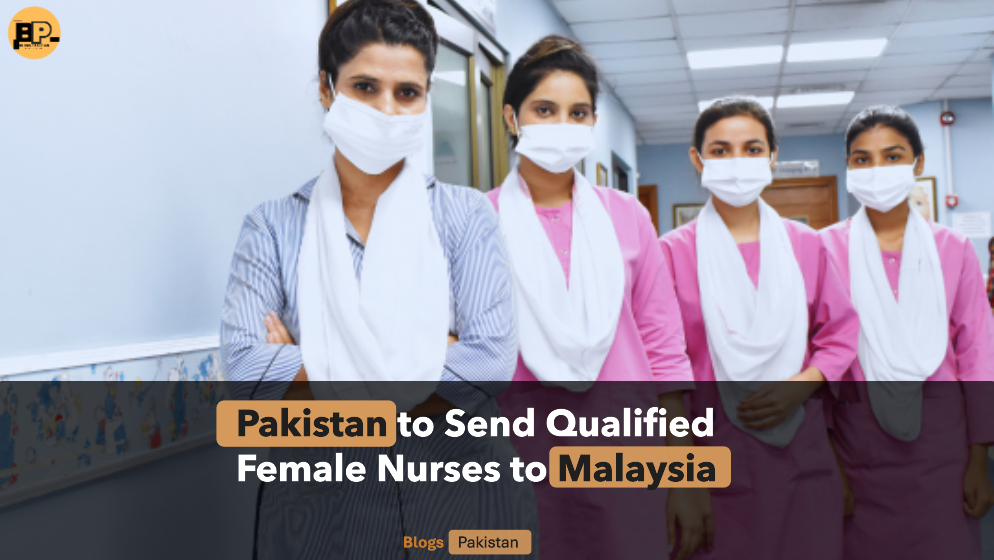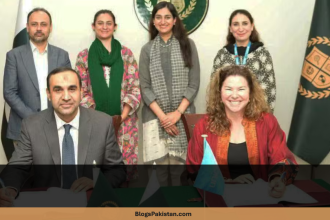Discover how Pakistan’s initiative to send qualified female nurses to Malaysia addresses global healthcare demands, empowers women, and strengthens international ties. Learn the benefits, challenges, and future prospects.
In a significant move to address global healthcare workforce shortages, Pakistan has announced plans to send qualified female nurses to Malaysia. This collaboration highlights Pakistan’s commitment to bolstering its healthcare exports while supporting Malaysia’s growing demand for skilled medical professionals. For Malaysia, this initiative offers a timely solution to its healthcare staffing gaps, particularly in critical sectors like geriatric and emergency care. For Pakistan, it unlocks opportunities for economic growth, women’s empowerment, and enhanced diplomatic relations. This blog explores the details of this partnership, its implications for both nations, and its potential to reshape the future of healthcare employment in Asia.
The Growing Demand for Nurses in Malaysia
Malaysia’s healthcare system has seen rapid expansion over the past decade, driven by its aging population, rising chronic diseases, and medical tourism industry. According to the Malaysian Health Ministry, the country faces a shortage of 15,000 nurses by 2025, with demand concentrated in urban hospitals and specialized care units. To bridge this gap, Malaysia has turned to international recruitment, prioritizing English-speaking professionals with accredited qualifications.
Pakistan, with its large pool of trained nurses and English-language proficiency, has emerged as an ideal partner. Over 15,000 Pakistani nurses are already employed in Gulf countries, showcasing their adaptability and expertise in international healthcare settings.
The Pakistan-Malaysia Nursing Agreement: Key Details
The agreement between Pakistan and Malaysia focuses on recruiting qualified female nurses through a structured, government-regulated process. Key aspects include:
- Eligibility Criteria: Candidates must hold a Bachelor of Science in Nursing (BSN) or a diploma from Pakistan Nursing Council (PNC)-accredited institutions.
- Language Proficiency: Fluency in English and mandatory cultural orientation programs for smooth integration.
- Employment Terms: Competitive salaries (estimated MYR 3,000–4,500/month), benefits like health insurance, and 2–3-year renewable contracts.
- Government Oversight: Pakistan’s Ministry of Overseas Employment and Malaysia’s Health Ministry will monitor recruitment to prevent exploitation.
This initiative builds on a 2023 Memorandum of Understanding (MoU) to enhance labor cooperation, reflecting both nations’ focus on ethical and sustainable workforce migration.
Why Pakistani Nurses Stand Out
Pakistan’s nursing education system produces highly skilled professionals, recognized for their:
- Technical Expertise: Rigorous training in clinical practices, patient care, and emergency response.
- Cultural Sensitivity: Experience working in diverse environments, including Saudi Arabia and the UAE.
- Resilience: Proven adaptability in high-pressure settings, such as during Pakistan’s COVID-19 response.
Malaysian employers have particularly praised Pakistani nurses for their dedication and compassionate care, making them preferred candidates for roles in geriatrics, pediatrics, and ICU units.
Benefits for Pakistan
- Economic Growth: Remittances from overseas workers are a cornerstone of Pakistan’s economy. Nursing exports could generate $500 million annually, strengthening foreign reserves.
- Women’s Empowerment: Nursing is a female-dominated profession in Pakistan, offering women financial independence and career growth. International exposure enhances their skills and leadership potential.
- Reducing Unemployment: Pakistan’s healthcare sector produces over 10,000 nursing graduates yearly, but domestic job creation lags. Overseas placements alleviate unemployment pressures.
- Global Reputation: Successful deployments enhance Pakistan’s image as a reliable source of healthcare talent, paving the way for agreements with other countries.
Advantages for Malaysia
- Filling Critical Gaps: Pakistani nurses will address shortages in rural clinics and urban hospitals, improving healthcare accessibility.
- Cost-Effective Recruitment: Compared to Western hires, Pakistani nurses offer a budget-friendly solution without compromising quality.
- Cultural Compatibility: Shared cultural values and Islamic practices ease integration into Malaysian society.
- Medical Tourism Boost: A well-staffed healthcare system strengthens Malaysia’s position as a top destination for medical tourists, contributing $1.7 billion annually to its economy.
Challenges and Mitigation Strategies
While the partnership is promising, both nations must address potential hurdles:
- Brain Drain Concerns: Pakistan risks losing skilled workers. Solution: Incentivize nurses to return with advanced training opportunities.
- Cultural Adaptation: Language barriers and workplace differences. Solution: Pre-departure training programs on Malaysian culture and medical protocols.
- Exploitation Risks: Unethical recruitment practices. Solution: Strict enforcement of bilateral labor agreements and grievance redressal mechanisms.
The Road Ahead
This collaboration could set a precedent for similar agreements between Asia’s developing and developed nations. Pakistan aims to expand nursing exports to Europe and North America, while Malaysia may extend partnerships to other medical roles, like pharmacists and lab technicians.
For aspiring Pakistani nurses, this initiative opens doors to global careers. Prospective candidates should:
- Ensure their credentials are verified by the Pakistan Nursing Council.
- Improve language skills and familiarize themselves with Malaysia’s healthcare standards.
- Stay updated on recruitment drives through official government portals.
Pakistan’s decision to send qualified female nurses to Malaysia is a win-win strategy, addressing critical healthcare needs while fostering economic and social growth. By prioritizing ethical recruitment and mutual benefits, this partnership sets a benchmark for international labor collaboration. As the first batch of nurses prepares for deployment, the world watches closely—this initiative could redefine how nations tackle workforce shortages in an increasingly interconnected world.










